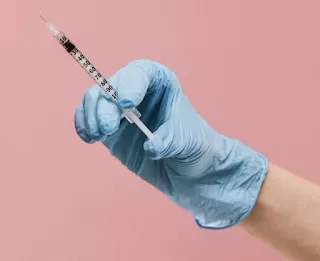USAID Commits $2.3m to Malaria Tablets in Nigeria

Covid-19 vaccine has saved more than 3.8 million lives in US.. Study says
USAID has just committed $2.3 million to procure 4.8 million doses of life-saving malaria tablets from Nigerian pharmaceutical leader, Swiss Pharma. This landmark partnership aims to expand access to essential medicines in Nigeria and West Africa, which is fantastic news for the region.
Nigeria has long faced significant challenges in procuring affordable, high-quality medicines due to the high cost of production and the inability of many local pharmaceutical companies to meet international quality standards ¹. But with Swiss Pharma now holding a World Health Organization prequalification for sulfadoxine/pyrimethamine tablets, a vital medicine for malaria prevention during pregnancy, there’s hope for improved healthcare delivery.
Key Highlights of the Partnership:
- Expanded Access: The partnership will increase access to essential medicines in Nigeria and West Africa
- Local Manufacturing: Swiss Pharma’s WHO prequalification enhances local manufacturing capacity, contributing to public health efforts to combat preventable diseases
- Quality Assurance: The partnership ensures the production of high-quality medicines, reducing the risk of counterfeit or substandard medications
This collaboration is a testament to the power of partnership in improving healthcare in Nigeria. As USAID Mission Director Melissa Jones noted, “We are proud to have supported Swipha in reaching this milestone and look forward to continuing our partnership to ensure more quality medicines reach those who need them most”
Revolutionizing Healthcare Delivery in Nigeria: Enhancing Affordability, Accessibility, and Standards
Nigeria’s healthcare landscape is plagued by numerous challenges, including inadequate infrastructure, limited access to quality care, and high healthcare costs. Despite ongoing efforts by the government and stakeholders, achieving universal healthcare coverage remains a significant concern.
Challenges Facing Healthcare Delivery in Nigeria
Healthcare affordability is a major issue, with most expenses paid out-of-pocket and limited insurance coverage. The “japa” syndrome, or brain drain, also poses a significant challenge, as many healthcare professionals seek better opportunities abroad.
Strategies for Enhancing Healthcare Affordability and Accessibility
To address these challenges, experts recommend prioritizing primary care through asset-light clinics, improving regulatory frameworks, and focusing on patient safety and effectiveness.
- Revamping Primary Healthcare: Redesigning the system to prioritize asset-light clinics can meet 90% of healthcare needs without relying on hospitals.
- Public-Private Integration (PPI): Outsourcing healthcare services to the private sector can unlock necessary resources and ensure access to quality services for all.
- Innovative Financing Mechanisms: Micro-insurance products, national health savings accounts, crowdfunding, and social financing mechanisms can help bridge the financial gap.
Role of Technology in Enhancing Healthcare Delivery
Technology can revolutionize healthcare delivery in Nigeria by improving efficiency, accessibility, and quality
- Telemedicine and Digital Health Solutions: Mobile clinics and telemedicine can provide access to healthcare in rural areas.
- Electronic Medical Records: Voice recognition technology can enhance doctor-patient interactions and streamline record-keeping.
- Data Privacy and Security: Ensuring secure and private healthcare data management is crucial.
Way Forward
Achieving universal healthcare coverage in Nigeria requires a multi-faceted approach that addresses affordability, accessibility, and quality. By prioritizing primary care, leveraging public-private partnerships, and harnessing technology, Nigeria can revolutionize its healthcare delivery system and improve health outcomes for its citizens.






